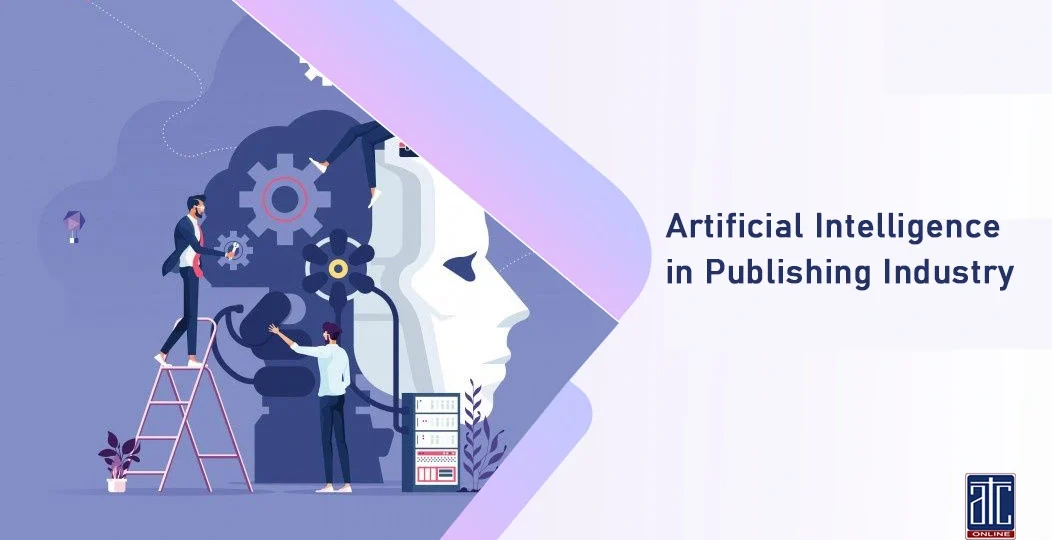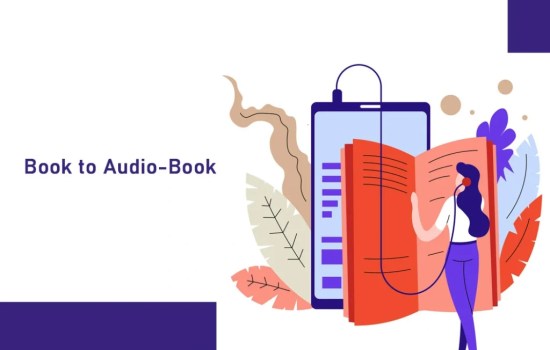
Artificial intelligence (AI) is the capacity of gadgets or technology to perform tasks that would traditionally require human intelligence to complete. Artificial intelligence (AI) is transforming the world. It is also contributing significantly to the expansion of the business sector. There are numerous apps, websites, and other resources available to provide information or assistance to businesses. AI is also making inroads into the publishing industry.
Artificial intelligence is a broad term that encompasses a variety of technologies that allow computers to perceive, understand, act, and learn. Machine or Deep Learning is used in all current AI applications in the publishing industry, either alone or in conjunction with other technologies such as Natural Language Processing (NLP), Voice Recognition, or Computer Vision.
Traditionally, print media catered to a diverse audience, whereas TV networks telecast programmes to a diverse audience. Smart digital devices of today have largely replaced this scenario, giving the viewer complete control over the selection process. People can watch whatever they want on OTT platforms like Netflix, Prime Video, and many others. This is where AI can help the publishing industry; its involvement is critical in acknowledging and capable of understanding the content preferences of the target audience.
Publishing Firms must provide a tailored experience rather than generic material to engage a technologically cognizant audience or reader. Any customized experience necessitates the use of a cutting-edge AI recommendation engine that takes into account individual personal tastes based on media consumption history. Let us now look at some examples of how AI is leveraged to benefit the Publishing Industry.
WORKFLOW OPTIMIZATION

Publishers have been incorporating AI into their operations to improve the efficiency of their publishing workflow. AI assists in accelerating and optimizing many aspects of the publishing workflow, such as editing, copy-editing, type-setting, and proof-reading. AI-induced automation ensures that publications are completed with greater rapidity and precision.
CONTENT DEVELOPMENT

AI benefits the publishing industry in a variety of ways. It can, for example, assist publishers in determining what content to publish, where and when to publish it. AI can also assist publishers in maximizing their marketing campaigns. AI can also suggest new story ideas to both publishers and authors. Finally, AI can assist readers in selecting suitable books and authors. Powered by AI, predictive analysis of viral media consumption, combined with sentiment analysis of sponsored media consumption, can reveal future content trends.
CONTENT ANALYSIS

AI-powered content analysis tools sift through user data to generate publishing ideas with a higher chance of success. These tools provide information about the importance of a specific subject and the level of customer interest in it. This makes it easier for publishing companies to choose topics that will stimulate interest and their audience base. When making content decisions, machine learning can assist editors in going beyond gut instinct. AI analyzes book manuscripts using machine learning software and compares them to bestseller characteristics. Authors, publishers, and literary agents can use this insightful analysis to identify the most marketable projects.
E-BOOK FORMATTING

E-book publishers can produce e – books that look and feel like printed books by evaluating text content with machine learning algorithms. This makes readers feel more connected to the authors and their work, while also reducing the need for third-party formatting solutions.
CONVERSION OF BOOKS TO AUDIO-BOOKS

With the assistance of AI, publishers can now convert a book to an audiobook format. Text-to-speech conversion technology based on AI has advanced significantly, producing great AI narrators with exceptional quality and flair. The most significant advantage of using AI for automatic data conversion processes for publishers is a shorter turnaround time. As a result, publishers can broaden their content and reach emerging markets. There is a growing number of consumers that prefers to listen to audiobooks instead of reading text. As a result, this is a wise strategy for reaching out to a new audience.
TRANSLATION OF DIVERSE CONTENT

Languages are primarily large data combinations full of words and meanings that are governed by rules that dictate how those words are used. Artificial intelligence has contributed to the development of professional translation automation. Thus, resulting in greater access to material in multiple languages. AI also reduces the risk of human error while also shortening the time for translated content to reach the market. AI translation is simply the technique that is applied to languages. This goes far beyond standard machine translation, which translates every word directly, often resulting in serious misunderstandings. AI tools, on the other hand, can understand phrases, voice tones, intricate sentence patterns, and even jokes or colloquialisms.
SAVES MONEY & TIME

One of the most significant advantages of AI in publishing is that it can save both authors and publishers time and money. AI can quickly analyze large amounts of data to establish trends over time that humans would generally overlook. It can also recognize possibilities that a human may be unaware of. As a result, AI-assisted publishing has the potential to diminish the need for human resources to perform tasks like market analysis or book research. This saves both publishing houses and authors’ time and money.
COPYRIGHT PROTECTION

A publisher’s copyright is a valuable asset. Publishers own the intellectual property in the content they publish and market. AI can help publishers protect their intellectual property by automatically scanning their content and identifying it if it is illegally taken straight from publications webpages or social media accounts, where authors frequently share their works to promote them. AI plagiarism tools can identify duplicated content and alert users to infringement of copyright.
SEARCH ENGINE OPTIMIZATION

AI can assist a publisher in determining the best keywords for their published content. These keywords can be used in SEO, e-commerce portals, online stores, and distribution channels. The effective use of critical editorial metadata such as headline, classification, keywords, synopsis, and other useful semantic statistics increases the likelihood that a book or publication will be discovered on the vast Internet.
CUSTOMER SERVICE

A chat interface powered by AI is an excellent tool for the publishing industry. Chatbots mimic human conversations and make predictions based on the responses of customers. They can be useful in distributing published content to a more targeted audience. Customers can have an engaging experience with chatbots by letting them to customize content based on preferences and report concerns. The inquiries of a researcher, editor, librarian, or student will differ based on the users and other demographics. Algorithms that use deep learning, machine learning, and natural language processing (NLP) can be created in good time. In conjunction with text analysis and applied linguistics, sentiment analysis can be used to decipher your user’s mood and act appropriately.
FINAL THOUGHTS
AI has enormous potential in the publishing industry. Many people in the publishing industry are already leveraging AI and MI solutions, along with data and analytics, to solve unique business problems and gain a competitive advantage.
ATC ONLINE, as industry veterans, designed the PACIFYCA Publishing Management System as a cloud solution that is secure and easily accessible at any time and from any location. Our ERP Solution has a proven track record of high efficiency at a low cost.
To know more about PACIFYCA Publishing Management System, please visit https://atconline.biz/products/pacifyca-publishing-management-system/
You are also invited to visit our homepage, www.atconline.biz to gain an insight into our complete range of Services & Solutions.

